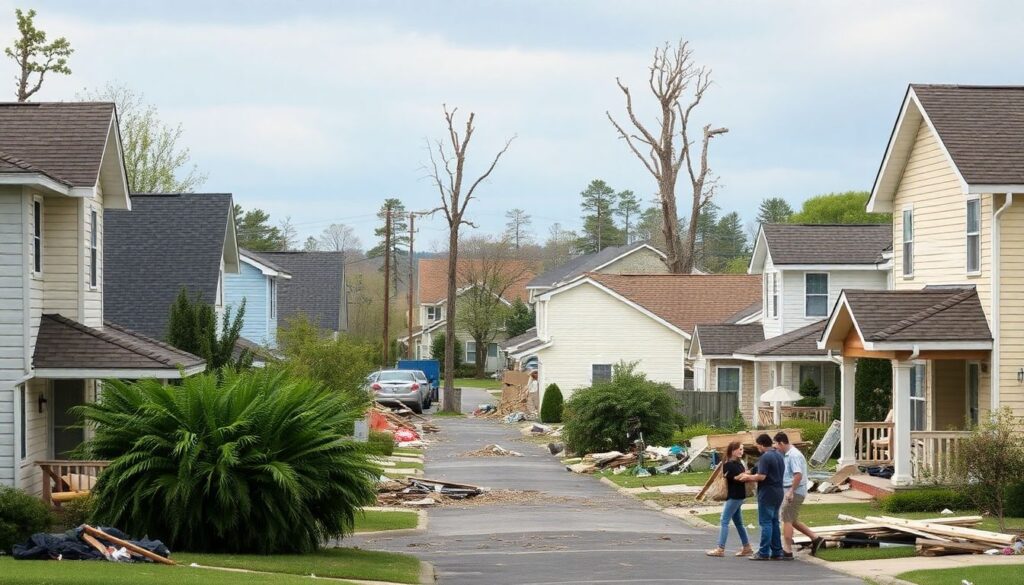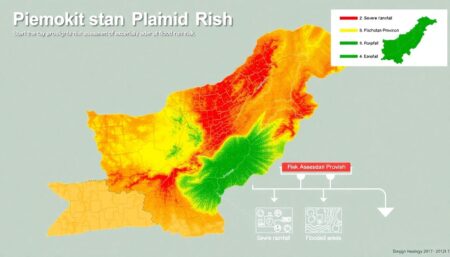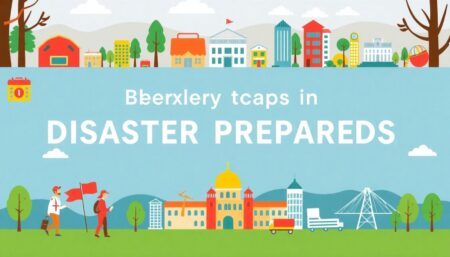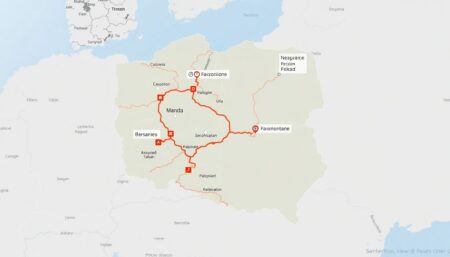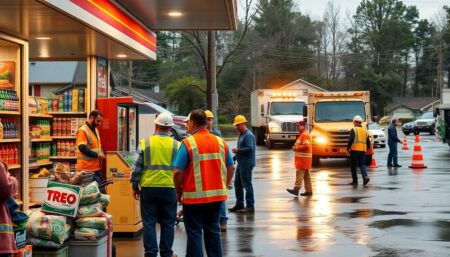Welcome to this comprehensive guide on navigating the aftermath of a natural disaster. Whether you’re a homeowner or a renter, knowing what steps to take can make all the difference in ensuring a smooth recovery. Let’s dive into the essential tips and resources provided by Freddie Mac to help you get back on your feet.
Navigating the Aftermath: A Comprehensive Guide for Homeowners and Renters
In the heart of suburbia, where manicured lawns and white picket fences were the norm, Mother Nature unleashed her fury. A natural disaster, swift and unpredictable, swept through the serene neighborhood, leaving behind a trail of uprooted trees, shattered windows, and displaced families. The calm of the morning was replaced by the urgent cries of neighbors checking on one another, the scent of fresh coffee supplanted by the acrid smell of damp earth and broken timber.
Homeowners, with their sleeves rolled up and determination in their eyes, emerged from their damaged homes, ready to face the challenge. They were joined by renters, who, despite not owning the properties, felt a deep sense of community and responsibility. Together, they began the daunting task of assessing the damage, their voices a mix of concern and resolve as they called out to one another, clipboards and cameras in hand.
Amidst the chaos, a sense of order began to emerge. Groups were formed, each with a specific task—from contacting emergency services to reaching out to insurance companies and local contractors. The hum of activity filled the air, punctuated by the beeps of phones as neighbors exchanged numbers and shared information. Despite the devastation, there was an unmistakable spirit of unity, a testament to the power of community in the face of adversity.
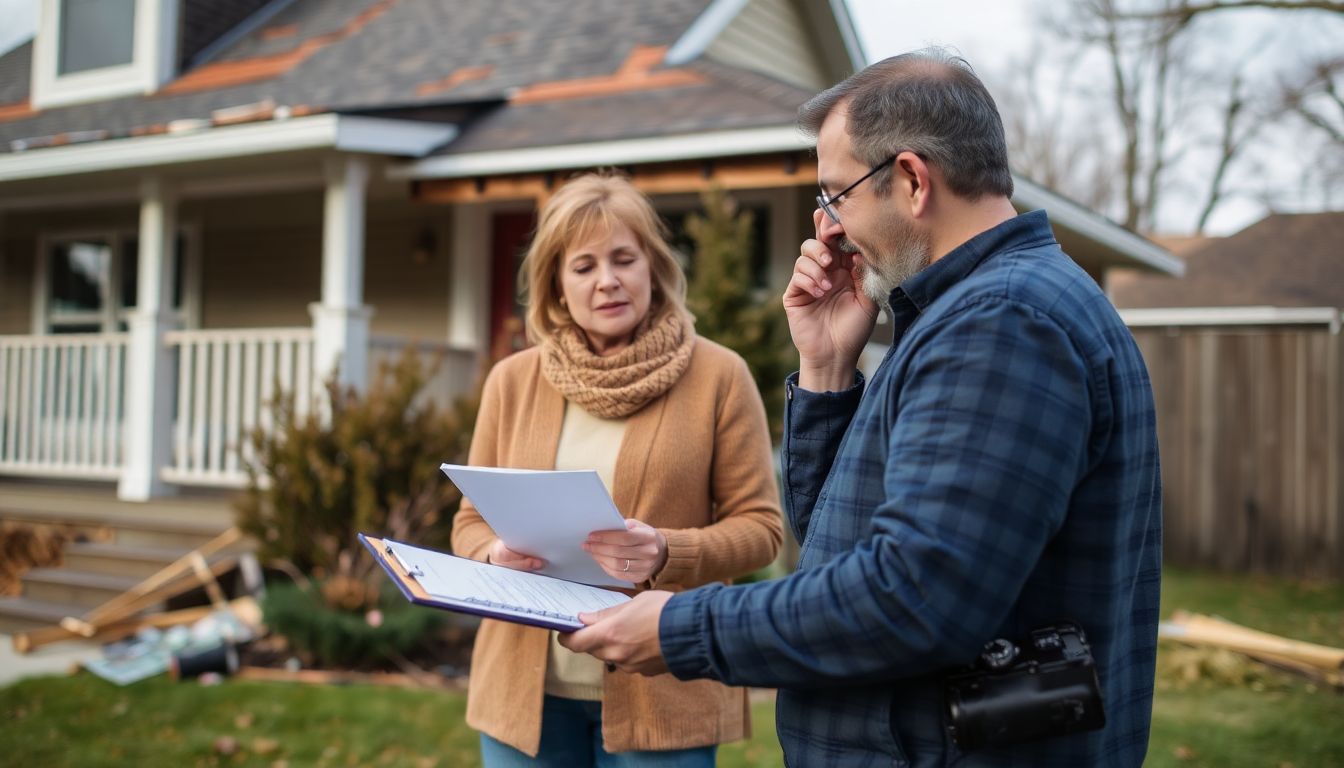
Contact Your Insurer and Mortgage Servicer
In the wake of a natural disaster, contacting your insurance agent and mortgage servicer should be at the top of your priority list. This is not just about filing claims; it’s about getting your life back on track as quickly as possible. Insurance agents can guide you through the claims process, ensuring you get the full benefit of your policy. Mortgage servicers, on the other hand, can provide relief options, such as temporarily reducing or suspending your mortgage payments.
For homeowners, the first step is to contact your insurance company and file a claim. Be ready to provide your policy number and a description of the damage. Here are some key steps to follow:
- Document the damage extensively with photos and videos.
- Make a list of damaged or lost items.
- Save all receipts related to repairs and temporary living expenses.
- Communicate with your mortgage servicer to discuss your options for mortgage relief.
Renters should also contact their insurance agent, assuming they have renters insurance. Your policy may cover temporary housing costs if your rental becomes uninhabitable. Alongside this, communicate openly with your property manager about the damage. Here’s what renters should do:
- Document all damage to your personal belongings and the rental property itself.
- Keep a record of any communications with your landlord or property manager.
- If you’re unable to stay in your rental, keep receipts for any hotel stays or other temporary housing costs.
Communication is key when dealing with the aftermath of a natural disaster. Keep your insurance agent, mortgage servicer, and property manager (if applicable) in the loop throughout the process. Be sure to:
- Provide them with updates on any repairs or changes to your living situation.
- Respond promptly to any requests for information or documents.
- Ask questions if you’re unclear about any part of the process.

Get Relief
In these uncertain times, both renters and homeowners may find themselves in need of financial relief. Fortunately, there are several options available to help ease the burden of housing costs. Let’s explore some of the most common relief options and understand how they can provide much-needed support.
Flexible Payment Plans:
These plans allow tenants and homeowners to adjust their payment schedules to better fit their current financial situation. Here’s how they work:
- For renters, landlords may agree to temporarily reduce or delay rent payments, with the expectation that any missed payments will be caught up in the future.
- For homeowners, mortgage lenders may offer plans that allow for a temporary reduction or suspension of mortgage payments, with a repayment plan to be implemented later.
Rental Abatement Clauses:
This clause in a lease agreement allows for a temporary reduction or suspension of rent payments under certain conditions. For instance:
- The clause may be triggered by a job loss, medical emergency, or other unexpected financial hardship.
- The specific terms of abatement will vary depending on the lease agreement and the landlord’s discretion.
For homeowners, mortgage forbearance is a popular option that allows for a temporary pause or reduction in mortgage payments. It’s important to note that:
- Forbearance is not forgiveness—any missed payments will need to be repaid in the future.
- The specific terms of repayment will vary depending on the lender and the type of mortgage.
Additionally, both renters and homeowners may be eligible for government assistance programs, which can provide various forms of financial support, including:
- Direct financial assistance for rent or mortgage payments.
- Subsidized housing or housing vouchers.
- Counseling services to help with budgeting, credit repair, and other financial concerns.
These programs can be a lifeline for those in need, providing much-needed support and stability in uncertain times.
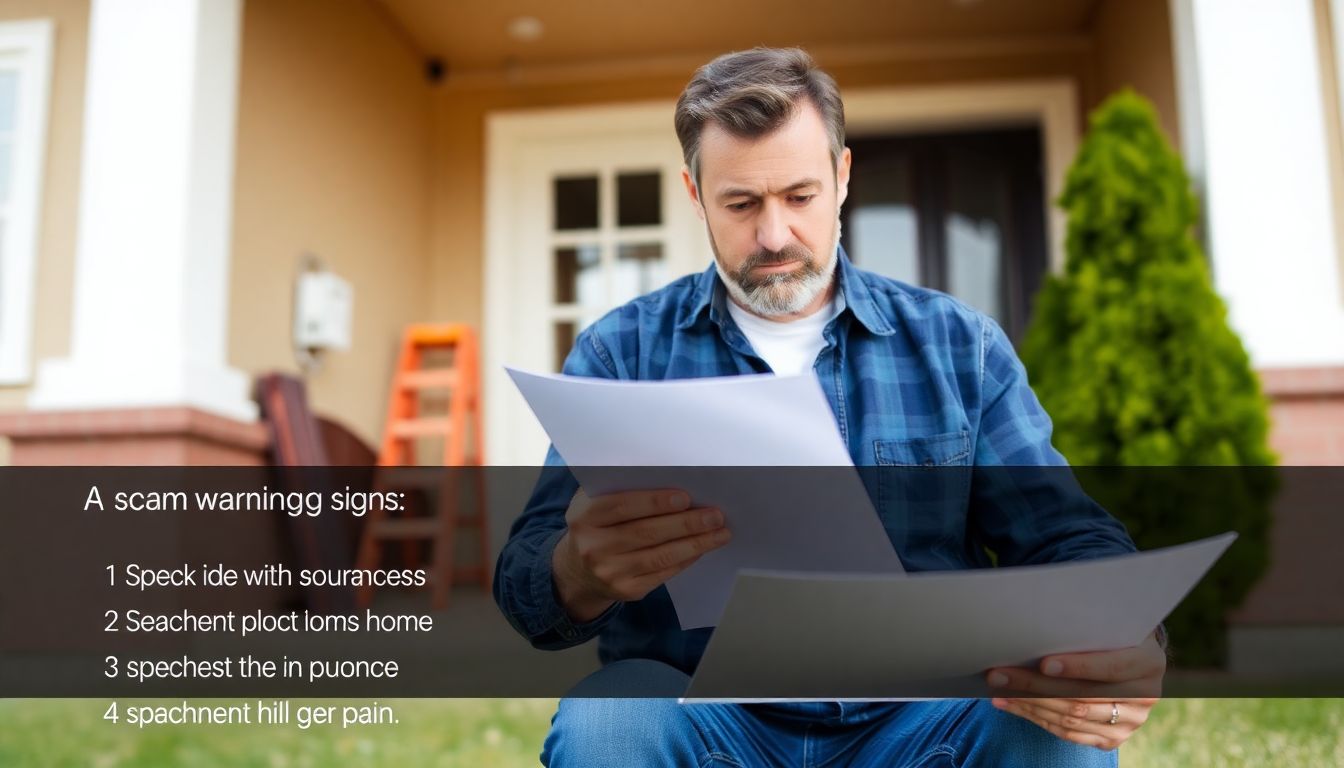
Be Aware of Scams
In the wake of natural disasters, when individuals are most vulnerable, opportunistic scammers often swoop in to exploit the situation. Some of the most common scams include fake charities, where fraudsters solicit donations that never reach the intended beneficiaries. Home repair scams are also prevalent, targeting homeowners desperate to fix their properties, offering services but demanding upfront payment and disappearing without completing the work. Additionally, insurance scams may arise, with scammers posing as insurance agents to steal personal information or premiums. Price gouging is another concern, where essential goods and services are sold at exorbitant prices.
To avoid becoming a victim of these nefarious activities, keep the following tips in mind:
- Be wary of unsolicited offers: If a charity or contractor approaches you out of the blue, be cautious.
- Verify credentials: Always ask for identification and proof of licensing before hiring anyone or making a donation.
- Never pay upfront: Reputable contractors typically don’t demand full payment before starting the work.
- Be cautious with personal information: Avoid sharing sensitive data like your Social Security number or banking details unless absolutely necessary and you’re sure of the recipient’s legitimacy.
- Report suspected price gouging: If you notice unusually high prices for essential items, report them to your local authorities or attorney general’s office.
If you suspect you’ve been scammed, taking quick action is crucial:
- Gather all relevant documents and information about the suspected scammer.
- Contact your local law enforcement and file a report.
- Report the incident to your state’s consumer protection agency or the Federal Trade Commission (FTC) at reportfraud.ftc.gov.
- If the scam involves financial transactions, alert your bank or credit card company immediately.
- For insurance-related scams, inform your insurance company and your state’s insurance department.
Recovering from a natural disaster is challenging enough without the added stress of falling victim to scams. By staying vigilant, verifying information, and reporting suspicious activities, you can protect yourself and your community from these unscrupulous tactics. Remember, it’s always better to err on the side of caution and take your time in making decisions, especially when it comes to financial matters and personal information.
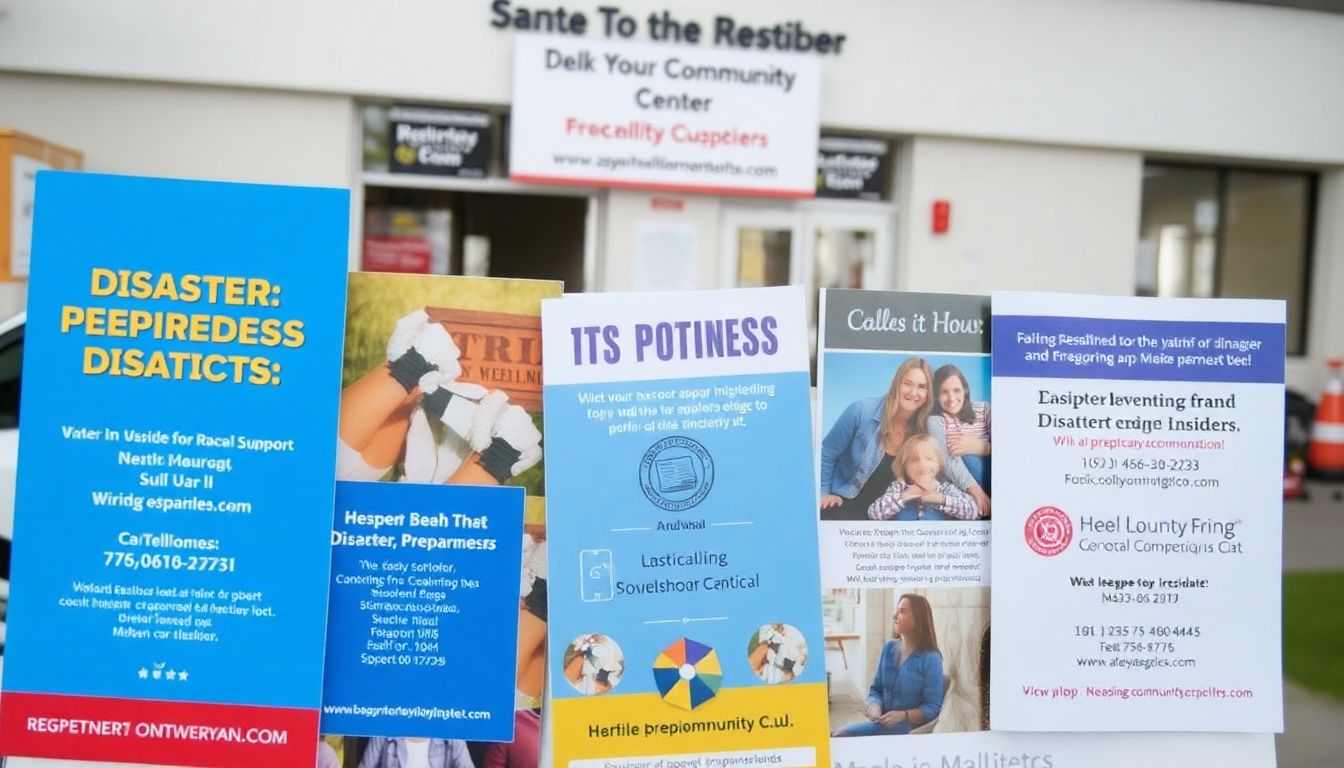
Additional Resources
Disaster preparedness and recovery are crucial aspects of ensuring community resilience. By educating yourself and your loved ones about potential risks and the resources available, you can significantly enhance your ability to respond and recover from disasters. Here are some essential educational resources and organizations that can provide further assistance in disaster preparedness and recovery.
First, let’s highlight some key governmental organizations that offer a wealth of information:
- Federal Emergency Management Agency (FEMA): FEMA provides extensive resources on disaster preparedness, response, and recovery. Their website offers guides, toolkits, and training materials to help individuals and communities prepare for various emergencies.
- Ready.gov: This government initiative offers practical tips and tools for preparing for and responding to disasters. The site includes sections on making a plan, building a kit, and staying informed.
- Centers for Disease Control and Prevention (CDC): The CDC provides health and safety information related to disasters, including guidance on emergency preparedness and response for specific populations, such as children, older adults, and people with disabilities.
Next, consider exploring these non-governmental organizations that specialize in disaster management:
- American Red Cross: The American Red Cross is a well-known humanitarian organization that offers a range of disaster preparedness and response resources. Their website includes information on preparing for specific types of disasters, as well as training courses and volunteer opportunities.
- International Federation of Red Cross and Red Crescent Societies (IFRC): The IFRC provides global resources and support for disaster risk reduction, preparedness, and response. Their website offers a wealth of information, including publications, toolkits, and guidelines for humanitarian action.
- PreventionWeb: This knowledge sharing platform offers a vast collection of resources related to disaster risk reduction, including research papers, case studies, and multimedia materials. It is managed by the United Nations Office for Disaster Risk Reduction (UNDRR).
Finally, here are some educational institutions and online platforms that offer courses and training materials:
- Coursera: Coursera offers online courses on disaster preparedness and management from renowned universities and institutions. These courses cover a wide range of topics, from emergency planning to post-disaster recovery.
- edX: edX is another leading online learning platform that provides courses on disaster management and resilience. Their offerings include courses from institutions like Harvard University, MIT, and the World Bank.
- National Incident Management System (NIMS): NIMS offers a comprehensive set of training resources and guidelines for incident management and emergency response. Their website includes online courses, workshops, and exercises to help individuals and organizations enhance their disaster management capabilities.
FAQ
What should I do immediately after a natural disaster?
How can I document the damage to my property?
What if I can’t make my rent or mortgage payments due to the disaster?
- Contact your property manager or mortgage servicer.
- Explore flexible payment options.
- Check for rental abatement clauses or mortgage forbearance.
How can I avoid scams after a natural disaster?
- Avoid high-interest loans and prepayment contracts.
- Verify the identity of government employees.
- Report suspected scams.



